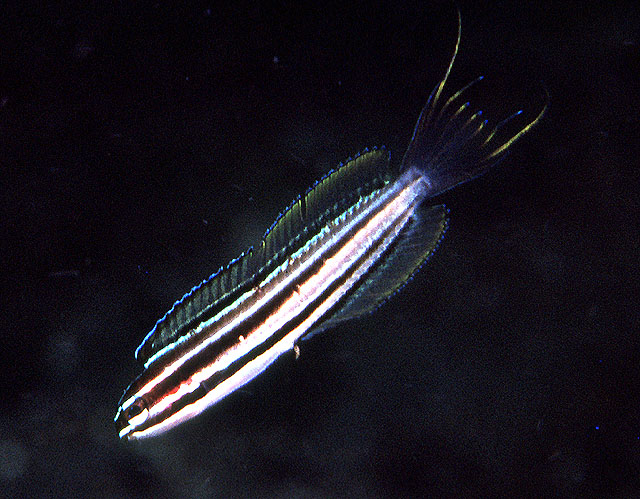| Blenniidae (Combtooth blennies), subfamily: Blenniinae |
| 11 cm TL (male/unsexed) |
|
demersal; marine; depth range 3 - 40 m |
| Western Central Pacific: Sulu Archipelago, Philippines. |
|
Large adults with multiple filaments on the tail and button-like marking along the mid-lateral stripe (Ref. 48636). |
| Adults occur in small schools along deep outer reef walls, usually swims upside-down on the ceilings of large caves (Ref. 48636). Oviparous. Eggs are demersal and adhesive (Ref. 205), and are attached to the substrate via a filamentous, adhesive pad or pedestal (Ref. 94114). Larvae are planktonic, often found in shallow, coastal waters (Ref. 94114). |
|
Least Concern (LC); Date assessed: 28 March 2009 Ref. (130435)
|
| harmless |
|
Type locality: Jolo Is., Sulu Archipelago (Ref. 48636). Museum: Sulu Archipelago, Jolo I., Tutu Bay, USNM 276511 (holotype, 2.93 cm SL, female); USNM 122384 (paratypes). Sirun I., USNM 99370 (Ref. 7401). Also Ref. 90102. |
Source and more info: www.fishbase.org. For personal, classroom, and other internal use only. Not for publication.

